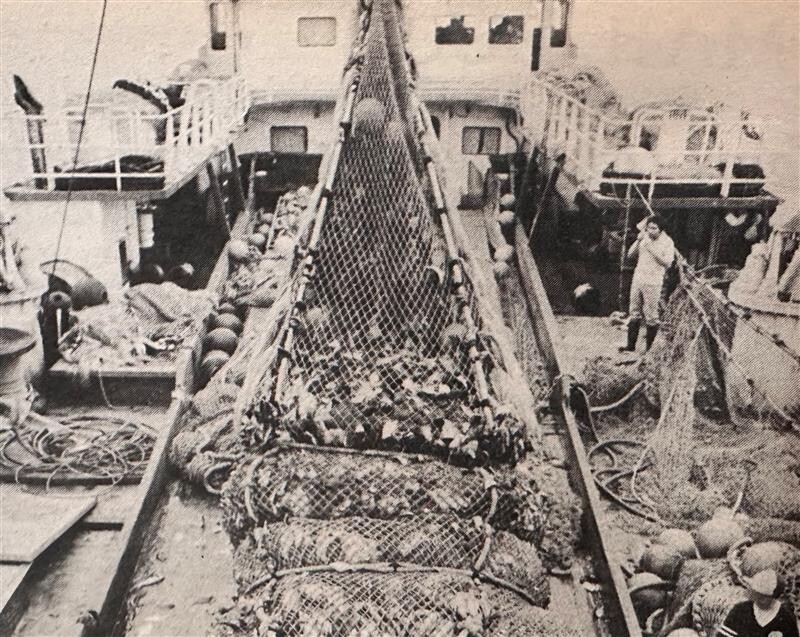Fishing Back When
Written by past editor Jim Fullilove from the November 1987 National Fisherman.
Not long ago, I attended a series of publishing workshops in New York City. At one session, several issues of NF were spread out on a table next to trade magazines that played to perhaps 20 different industries.
As publishers and editors from across the country milled around the table, almost without exception they'd pick up NF, stare at its cover and then fan through the pages. The reason is simple. Commercial fishing is a total mystery to just about everyone who isn't connected with it or doesn't live in a commercial port.
The business of fishing is done offshore and often out of sight of land. If the public knows anything about commercial fishing at all, the impressions are usually negative. A jumbled collection of news reports over the years have merged into a picture of an antiquated industry on its last legs, one whose nets wantonly kill countless whales and seals and whose captains don't give a damn about the safety of their crews.
All they'd have to do to feel the vitality and sophistication of the industry as they walk through the door. This year they'd see a show that is 20 percent larger than it's ever been, an event where $20 million in sales will be made in only a few days. They'd feel the enthusiasm that flows from the robust health of many West Coast fisheries. And they couldn't help but be awed by the impressive buildup of the bottomfish fleet of trawlers and catcher/processors off Alaska.
No one is saying commercial fishing doesn't have its problems. But we need to do a better public relations job if the industry is to garner public support. Take a neighbor to Expo.







